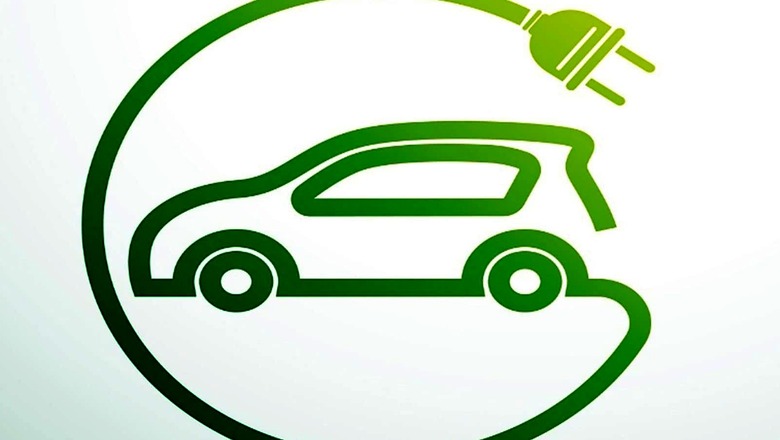
views
There is little doubt about India’s electric vehicle (EV) segment being the most popular and happening sector in its automobile landscape. As per data from the India Energy Storage Alliance, venture capitalists invested a massive $1.7 billion here last year. To date in 2022, this amount has touched $66 million.
The brimming momentum is palpable. In this decade, the EV market in India is touted to grow at a CAGR of 49%, touching sales figures of 17 million units annually. And amongst these, two-wheeler EVs take the biggest share. In fact, electric two-wheelers constituted 3.6% ( 2,40,662 units) of overall two-wheeler sales (66,95,434 units) between January and July this year.
According to Vahan, India’s digital national vehicle registry, EV sales tripled during the first six months of 2022. Till July, about 4,445 electric cars had been sold in India. Clearly, signs are pointing toward a budding awareness, and rising will to switch to EVs.
Even per the recent NITI Aayog-TIFAC report, a momentous and sooner-than-expected shift to electric mobility in India, especially in the two-wheeler segment, is possible. A solid 72,474 EVs were registered on Vahan in June 2022, zooming up 547% as compared to the same time last year.
Too pricey
But the single biggest impediment to their progress is their steep prices. According to the international car shopping database iSeeCars, while conventionally powered cars, i.e., ones fuelled by gas, petrol, or diesel saw their prices surging by around 10.1% this year, EV car prices skyrocketed by as much as 54.3%.
While EVs are relatively less expensive in terms of operational costs, their initial acquisition costs in India put them way out of the average Indian’s budget. In 2022, an average Indian earns about Rs 4,00,000 annually. But the average EV in India is priced at over Rs 10,00,000.
That is perhaps why in a recent media interaction, Maruti Suzuki chairman RC Bhargava advocated for incentivising the use of alternative technologies such as hybrid, CNG, ethanol, and biogas for producing small, affordable cars so that consumers in the “Bharat market” have an alternative to the costlier EVs.
“India is not a homogenous market,” he said. “There are two markets — the ‘Bharat’ market for affordable small cars and a sophisticated and developed market of consumers who want bigger, Rs 20-25 lakh cars. Despite all the noise about car sales shifting to the more expensive models and EVs, the share of vehicles priced over Rs 15 lakh is just around 15% of the entire market in FY 22. The fact remains that 56% of the car sales in FY 22 continue to be in the Rs 5 lakh to Rs 10 lakh category.”
Sturdy but not without challenges
The sector has been steadily growing over the past year, bouncing back from the Covid pandemic’s dent to its momentum. Automobile-based mutual funds, like the UTI Transportation & Logistics fund, have delivered healthy annual returns of about 24% as of August 2022. The Nifty Auto Index, too, has generated 31.96% over the past year.
In fact, the shares of the market leader in car-making, Maruti Suzuki, have risen by around 30.82% in the past year. The two-wheeler leader, Bajaj Auto, has also grown by about 10%.
However, despite this, uncertainties abound. The biggest one is the entry of the global leader, Chinese EV maker BYD, which is coming to the Indian market with an electric SUV this Diwali. The giant is already offering a range of 450-480 km, higher than MG’s and Hyundai’s EV offerings.
Palash Sinha, a Delhi-based investor, said, “There is a high level of uncertainty in this sector. The Indian automobile market is huge. If Chinese automakers pose a serious cost challenge to existing car makers, then the market will change completely. The idea of EVs is presently at a very basic stage. So unless a clear picture emerges, a long-term view is not possible.”
Read all the Latest Auto News and Breaking News here


















Comments
0 comment